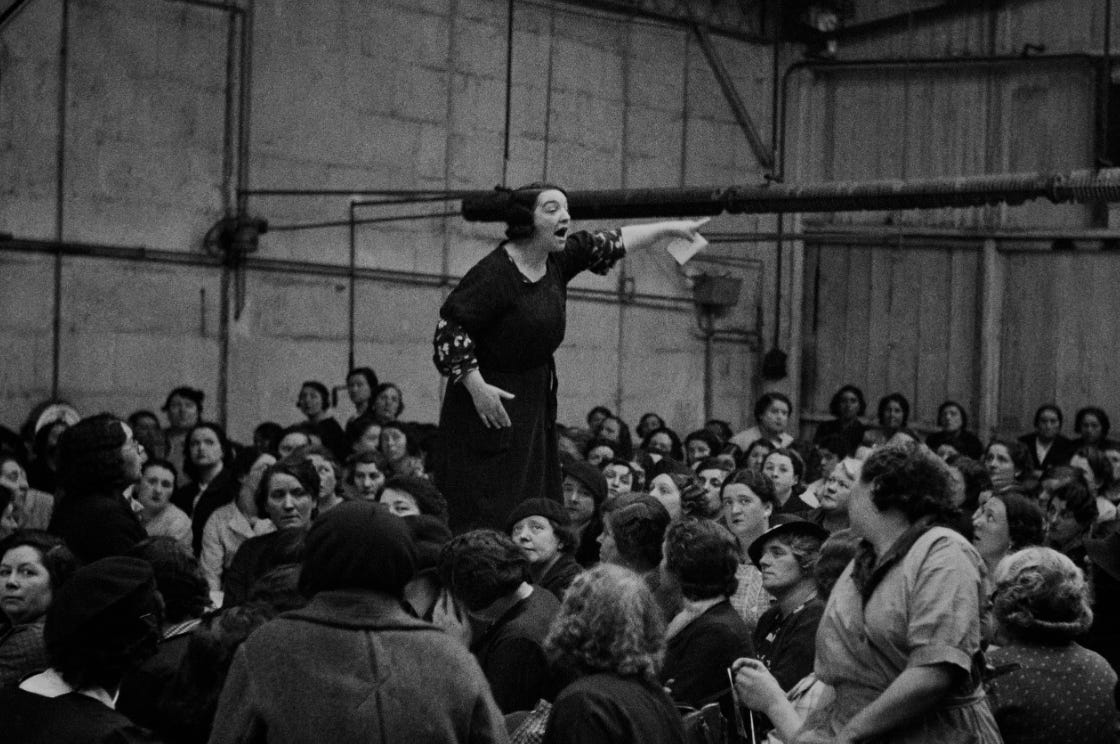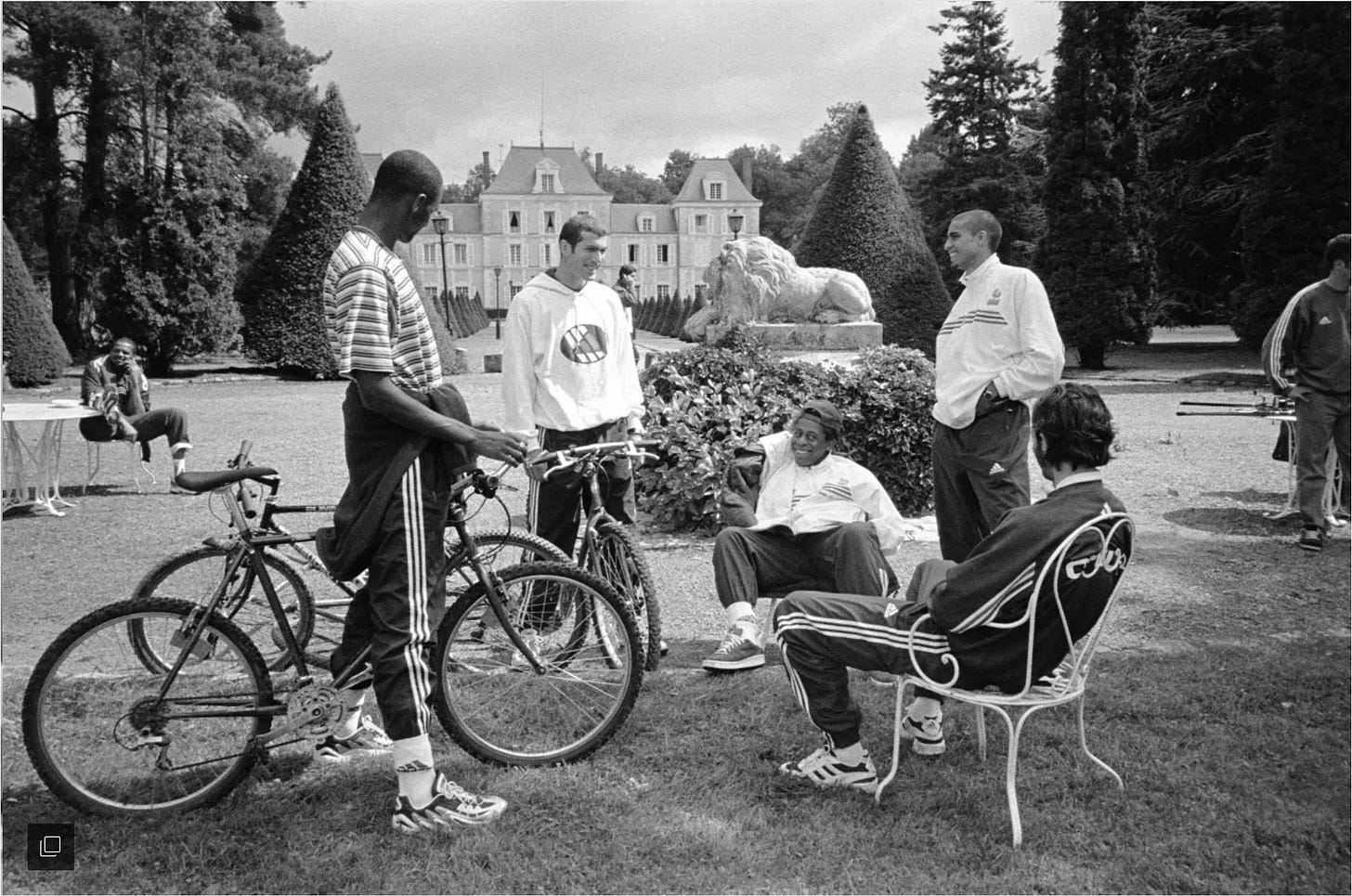
My rule is not to talk when I have nothing to say, so I’ve thought hard about what I can add to the conversation about the political disaster currently unfolding in France. In search of insight, I went back to the profile of Emmanuel Macron that I wrote in 2019. I was worried the piece wouldn’t hold up, but I think it mostly does, and it’s instructive to remember the extent to which the current crisis is consistent, in both political and personal terms, with Macron’s approach from the beginning of his mandate. When I interviewed Macron, his party had just lost that year’s European elections, finishing second to Marine Le Pen’s Rassemblement National by less than a percentage point. “In the dicey, regressing world order of 2019, maintenance qualifies as progress,” I wrote. After months of protests by the gilets jaunes, Macron was proud that his base had come through intact. “A lot of politicians thought that 2017 was an exception, or something like an aberration,” he told me, referring to his election as President, two years earlier. “This is no longer the case.” As I wrote in Saturday’s edition of The New Yorker Daily, “The latest European elections, which were held at the beginning of this month, demonstrated the prematurity of Macron’s judgment, and the extent to which the tentative coalition of moderates has crumbled to bits under his stewardship, scattering energy needed to counter the extreme right.” (Some of what I’m writing here is similar to what I wrote there, but the subject seems important enough to share in both places.)
One of Macron’s greatest political mistakes, in my opinion, has been his failure to uphold the pact of equilibrium that brought him to power. Instead, he has tacked further and further to the right, dragging the political center along with him (and closer to the Rassemblement National), and leaving behind his many supporters who fell anywhere to the left of center-right. (He would argue that the people went and he followed.) Even in 2019, it was clear that Macron had not made good on the “en même temps” promise on which he rose. In our conversation, he acknowledged a “desynchronization” problem, saying that he’d “front-loaded” fiscal reforms. He explained that, instead of practicing economic liberalism and social liberalism simultaneously, he had chosen to pursue them consecutively, but the social-justice sequence that he promised never quite materialized.
Re-reading the piece, I was especially struck by an exchange I had with the writer and economist Jacques Attali. I asked him whether he thought that Macron—given his romantic history, his career in finance, his audacious decision to run for president—had an unusual appetite for risk. “No,” he answered. “Transgression.” Writing in Le Monde, Raphaël Llorca observed that, with the dissolution of the legislature, it was as if Macron “had psychologically authorized the liquidation of all political limits,” encouraging all sorts of behavior that “might otherwise have stayed taboo.” Many commentators have described Macron’s decision as a reckless gamble; others have likened it to a game of Russian roulette. (You’ve heard about the “wood lice” at the Élysée Palace, right?) The most crazy-making part of this all is that we don’t have to be doing it. What’s more transgressive than roping the whole country into a game that has every possibility of ending with a bullet to the head?
Let’s turn our attention to the R.N. To the candidate—leading the field in the second district of the Yonne, with forty per cent of the vote—who says that “North Africans have no place in high posts.” To the one who is running, possibly illegally, despite having been placed under a mental-health guardianship. To the “ghost candidate” who hasn’t held a single public meeting. To the one who dropped out after being photographed wearing a Nazi hat. To the one who says she’s not racist because she has a Jewish ophthalmologist and a Muslim dentist. (No, really.) It’s no wonder that the forty-year-old slogan “La jeunesse emmerde le Front National” is back in fashion. (In reality, 23% of young voters chose the R.N. in the first round.) Racist, xenophobic, and homophobic aggressions are surging. Per the journalist Mohamed Bouhafsi, “There’s a before June 9th and an after June 9th.”
Listen to Aya Nakamura: “Donc dimanche on va tous aller voter, et contre le seul extrême à condamner car il n’y en a qu’un.” You could also listen to “No Pasarán,” an anti-R.N. anthem by twenty French rappers (“Jordan, t’es mort!”) I could have done without the conspiracy-mongering and the misogyny. The “craven and privileged behavior” of Bruno Le Maire, refusing to endorse the Nouveau Front Populaire over the R.N., nearly brought Marine Tondellier to tears. Raquel Garrido ripped into Laure Lavalette, the R.N. spokesperson. (“Ça suffit les conneries que vous dites!”) Other than the R.N., the only people who can be happy about this state of affairs are the manufacturers of election posters. (Apparently a single company called France Affichage Plus is responsible for posters in presidential, European, and regional elections.)
We’re on the brink—of political catastrophe, of the end of the school year, of les grandes vacances, of a potential Euro 2024 victory, of the Paris Olympics & Paralympics. My kids were amused by this “Mbappé masqué” song, which is at least as catchy as the Looking For a Guy in Finance one, but not as catchy as Town & Country’s genius coverline “Paris? Paris. Paris!” (Here’s
’s roundup of Paris’s hottest restaurants.) I’m wondering what Bernard Arnault thinks of Macron’s decision to throw the country into turmoil before the Louis Vuitton Medal Tray Games. I try not to use this space as a Dear Diary, but suffice it to say that the mood (or, at least, mine) is bizarre, both rancid and sweet, edgy and expectant. Maybe the en même temps temps have finally arrived.On a happy note, my brother and his family are coming to visit this year. I’m excited! I’m sending them Vanessa Grall’s wonderful, wonderful book “Don’t Be a Tourist In Paris,” from which I learned about the forgotten treehouse bars of Paris and a restaurant called Le Vaudesir, which, on the basis of its website, I already love. I’ll be taking my sister-in-law shopping at Soeur, and encouraging her to go home with what is truly the nicest buttondown around and the perfect black poplin pants. Also, these Vagabond mules in this pleasingly sickly shade of green. Here’s what else is on my list, including the greatest Parisian rooftop ever—below, just for paid subscribers, who make it possible for me to do this newsletter, and for whom I’m endlessly grateful.
Keep reading with a 7-day free trial
Subscribe to Lettre Recommandée to keep reading this post and get 7 days of free access to the full post archives.





